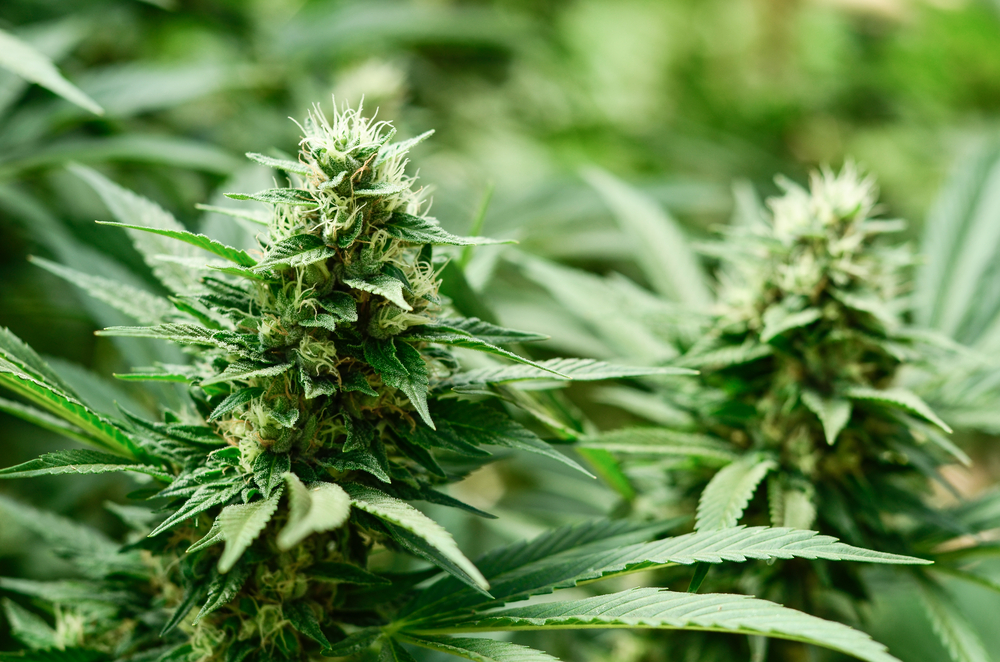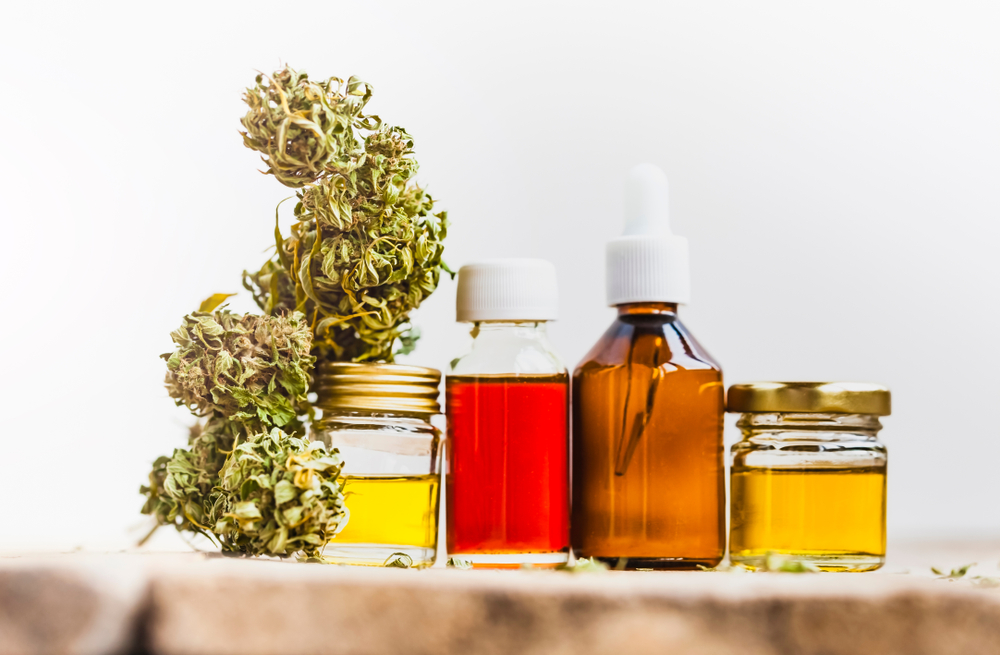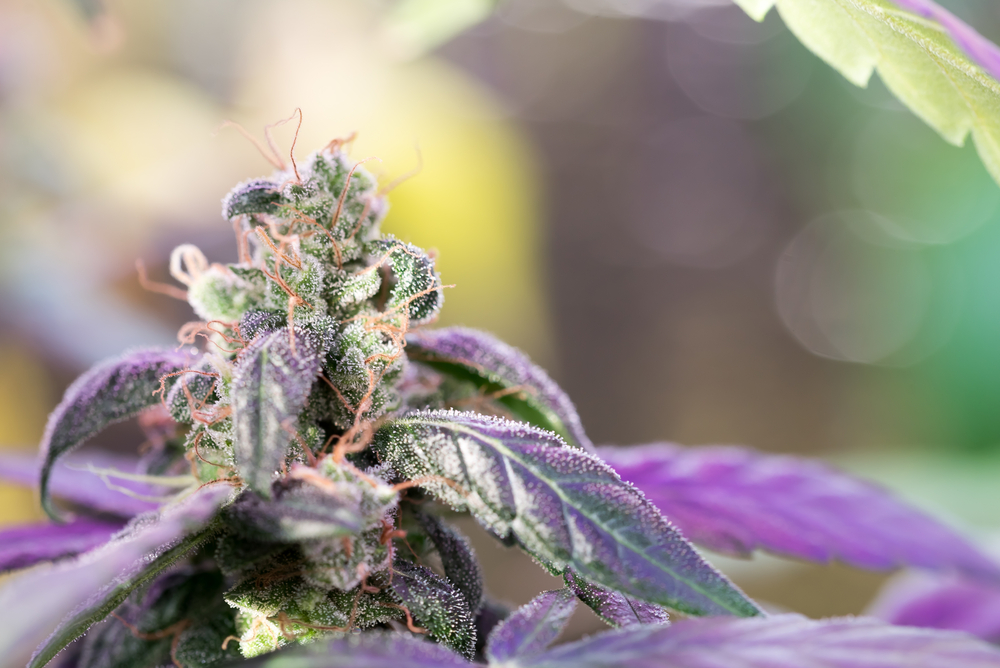Education
What is THCA and Why Does it Matter in Weed?
You have probably read all about THC, but how much do you know about THCA?
THCA is the non-psychoactive cannabinoid called tetrahydrocannabinolic acid that is lesser-known than its cannabis counterparts, such as CBD and THC.
Still, it deserves the same attention that its cannabis cousins get.
Let’s discover the importance and effects of this non-psychoactive cannabinoid and learn how THCA in raw cannabis becomes THC.
By the end of this article, you will be an expert on THCA! Let’s begin!
What is THCA?
While everyone focuses on THC, the well-known cannabinoid that produces the usual cannabis high, there is far more to the story!
Long before we’ve come to enjoy THC, the cannabis plant produces several cannabinoids that undergo various modifications.
The developing cannabis plant first undergoes a vegetative growth phase, where it gets big, tall, and strong before entering the flowering stage. At this point, female cannabis plants start producing flowers, with glands called trichomes that produce cannabinoids and terpenes as they mature.
All cannabinoids start as one mother-cannabinoid (you can also think of it as a cannabinoid stem cell) called cannabigerolic acid (CBGA). CBGA is the first step in the journey of cannabinoid production.
Once the plant produces CBGA, further maturation leads to differentiation. CBGA starts developing into a combination of THC-acid, cannabidiolic acid (CBDA), and cannabichromenic acid (CBCA).
And that’s how THCA is created!
But how do we make the jump from THCA to THC in cannabis? The answer is decarboxylation!
When we smoke, vape, or dab cannabis products, we are converting THCA into THC.
If you were to eat those same high-THC buds without any heating, you would not get psychoactive effects at all. This is because the raw cannabis is actually high on THC-acid, and decarbing must happen to activate it.
But don’t decarb your cannabis just yet. Here’s why THCA is worth trying.
Benefits of THCA

Research on THCA has helped illuminate how this cannabinoid produces potential benefits for adults of all ages. Evidence demonstrates that it is able to act upon our body, but in different ways than THC. Unlike the latter, THCA does not operate on the CB1 receptor to produce psychoactivity (the high).
There are plenty of reasons to consider consuming THCA. Here are a few of the known effects:
Neuroprotective
Along with the other cannabinoid acids, THCA is able to bind with and activate PPARγ (which plays a role in gene regulation).
The PPARγ-dependent pathway that THC-acid activates has demonstrated neuroprotective properties in mice. The researchers in this study concluded the potential benefits of THCA for neurodegenerative diseases, such as Huntington’s disease.
Anti-inflammatory
This is where THCA really shines. The evidence is clear, THC-acid has a potent anti-inflammatory punch. These effects also involve the PPARγ-dependent pathway.
We do not yet know the extent of these benefits and how they are best used, but it’s already inspiring to see that they exist.
Anti-obesity
The ability of THCA to reduce inflammation via PPARγ receptor appears to overlap with effects on obesity-associated metabolic syndrome.
Evidence suggests that THC-acid may settle the inflammation and support better metabolic health. We cannot say that this will help people lose weight, but it certainly could be the case.
More research is needed to determine how we can take advantage of these remarkable properties.
Antiemetic
THCA appears to act on a closely related set of receptors, called PPARα. The actions on this pathway appear to produce the anti-nausea effects noted in rats.
In other words, researchers suggest that THCA may demonstrate value in managing chemotherapy-induced nausea.
THCA vs. THC: What’s the Difference?

THCA and THC both come from the cannabis plant, but they are not the same thing.
There are several key differences between these two fascinating cannabinoids. Let’s explore them briefly below.
The Chemical Structure
The chemical structures of THCA and THC are similar but not identical. That said, THCA contains an additional carboxylic acid chain which prevents THCA from reaching the brain and producing a high.
Moreover, it is this chain that is removed during the decarboxylation of cannabis as THCA is converted.
Non-Psychoactive
THCA is non-psychoactive or, in other words, non-impairing. So if you want to get high, you might look elsewhere.
In this sense, THC is more like CBD. It boasts a vast assortment of healing benefits that you can reap from this compound instead of getting high.
Decarboxylation
THCA converts into THC when exposed to heat or decarboxylated.
As mentioned, applying heat removes the extra carboxylic acid chain present. A small amount of this conversion also occurs over time, especially when exposed to warmer temperatures and light.
This is why cannabis is stored in dark and cool places. Finally, it is also why we add heat to cannabis, whether through smoking, vaping, or dabbing.
THCA – A Healing Cannabis Compound
There you have it! You can now amaze your friends by telling them all about this amazing cannabis compound.
Most cannabis consumers have never thought about why they have to smoke buds or why eating raw cannabis does not produce a high. Now you know that in order to convert THCA into THC, heat needs to be applied.
As we learned today, THCA is a non-impairing (which means no high is produced) cannabinoid produced by live cannabis plants. It has various healing properties ranging from neuroprotective to antiemetic to inflammation-reducing.
Thanks to its various benefits, we can definitely expect to see more research conducted on this incredible cannabinoid.
And in the meantime, let’s stay safe and happy toking!



